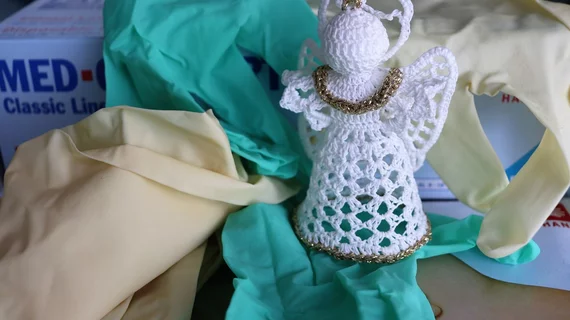Almost 80% of US nurses worry about infecting loved ones with COVID-19
A national sampling of more than 15,000 nurses, nearly 90% of them RNs, is collectively reporting “infecting family and friends” as the profession’s single most pressing concern during the COVID-19 crisis.
Some 79% see that as one their top three sources of distress regarding the present public-health crisis.
The findings are from a survey conducted by the staffing firm NurseGrid over a seven-day period ending April 19.
Following the family-and-friends concern were becoming infected while at work (61%), burnout (28%), mental health (27%), public complacency (23%), well-being of colleagues and/or delivering poor care (tied at 22%), and life after the pandemic (19%).
Some 89% of respondents work at facilities actively treating COVID-19 patients, NurseGrid reports, and 38% have been reassigned to focus on these patients.
The staffing organization also asked about shortages of supplies and equipment. New N95 masks are way out ahead on that score, named by 84% of respondents. A concerning 35% report staff shortages, while 32% name ventilators and 31% proper training.
Nearly half the hospitals represented are in need of tests for staff, and about a third don’t have enough for patients.
NurseGrid has posted the results online in infographic format, along with a separate webpage offering interactive maps, graphs and charts.

